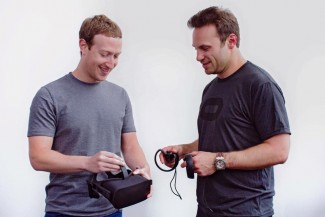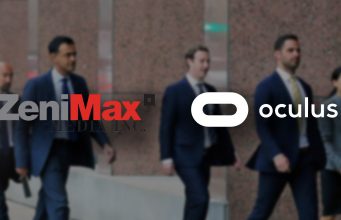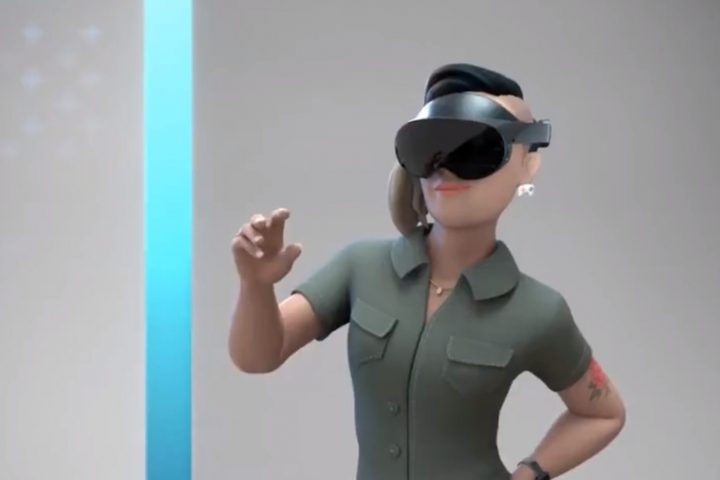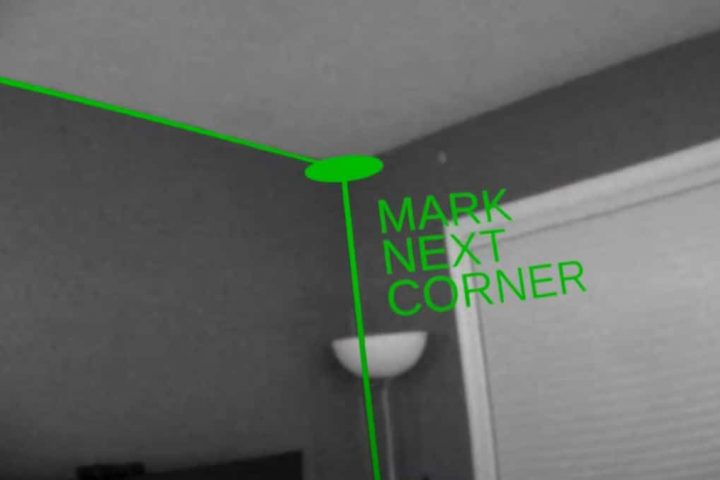
Following the news of a $500 million plaintiff award in the ZeniMax v. Oculus lawsuit, a detailed breakdown of the verdict reveals the jury’s specific findings, and who is responsible to pay for the damages.
Guest Article by Matt Hooper & Brian Sommer, IME Law
 Matt is a Partner at IME Law, where he represents clients in the immersive media, entertainment and technology industries. He represents several of the leading VR content creation and software companies in the United States. He also serves as Co-Chair of the VRARA Entertainment Committee. You can follow Matt on Twitter @mhooplaw.
Matt is a Partner at IME Law, where he represents clients in the immersive media, entertainment and technology industries. He represents several of the leading VR content creation and software companies in the United States. He also serves as Co-Chair of the VRARA Entertainment Committee. You can follow Matt on Twitter @mhooplaw.
 Brian is an interactive media and entertainment attorney at IME Law, where he focuses his practice on the intersection of traditional entertainment and immersive media. He also serves as Co-Chair of the VRARA Licensing Committee. You can follow Brian on Twitter @arvrlaw.
Brian is an interactive media and entertainment attorney at IME Law, where he focuses his practice on the intersection of traditional entertainment and immersive media. He also serves as Co-Chair of the VRARA Licensing Committee. You can follow Brian on Twitter @arvrlaw.
Breaking Down the Jury Verdict in ZeniMax v. Oculus
After only a few days of deliberating, the Oculus jury returned a verdict in favor of Plaintiffs ZeniMax and id Software totaling $500 million. ZeniMax was awarded money damages against Oculus, founder Palmer Luckey, (former CEO) Brendan Iribe and CTO John Carmack, but parent-company Facebook escaped monetary liability (although Oculus is a subsidiary of Facebook).
Before the jurors started deliberating, Judge Ed Kinkeade provided them with nearly 90-pages of jury instructions. The jury instructions read like a missive and questionnaire, detailing the laws the jury must apply and includes spaces for the jury to fill in their award decisions (each count has to be reached unanimously, and there were nine jurors). Since the jury is a cross-section of people with different levels of education and experience, the judge wrote the jury instructions in easily digestible format, being careful to not distort important legal significances and nuances. The Oculus jury was comprised of six women and three men, with a wide-array of diverse backgrounds.╫
The following summarizes each count in the jury instructions and how the jury ruled:
Common Law Misappropriation of Trade Secrets
Defendants: Oculus, Facebook, Luckey, Iribe and Carmack
Jury Award (Defendants’ Liability to Plaintiffs): $0
The plaintiffs alleged that the defendants misappropriated their trade secrets. The court explained that a trade secret is defined as “a formula, pattern, device or compilation of information used in a business which gives its owner an opportunity to obtain an advantage over his competitors who do not know or use it.” Plaintiffs asserted that their trade secrets included the following technologies: (1) distortion correction technology; (2) chromatic aberration correction method; (3) gravity orientation and sensor drift correction technology; (4) head and neck modeling technology; (5) HMD view bypass technology; (6) predictive tracking technology; and (7) time warping methodology.

To prevail on their claim for misappropriation of trade secrets, the plaintiffs needed to prove that: (1) a trade secret existed; (2) the defendants acquired the trade secret through breach of a confidential relationship or by improper means; (3) the defendants made commercial use of the trade secret in their business without authorization; and (4) the plaintiffs suffered damages as a result.
The jury found that ZeniMax failed to prove by a preponderance of evidence that any of the defendants misappropriated the trade secrets claimed by the plaintiffs. With respect to most civil claims, a plaintiff need only prove each element of a claim by a “preponderance of the evidence.” To establish an element by a preponderance of the evidence means to prove that “something is more likely so than not so.”╫ This is a significantly lower burden than the “beyond a reasonable doubt” standard which is used for criminal cases.
Because the jury found that ZeniMax failed to prove that any of the defendants misappropriated its trade secrets, the jury did not award any damages to ZeniMax for this claim.
Copyright Infringement
Against Defendants: Oculus, Facebook, Luckey, Iribe and Carmack
Jury Award: $50,000,000 in actual damages against Oculus
All the defendants were alleged to have copied ZeniMax or id Software’s computer programs code in violation of their copyrights. There is no copyright protection in a computer program for ideas, program logic, algorithms, systems, methods, concepts or layouts; only original “expressions” of work embodied in a computer program are eligible for copyright protection. For example, literal elements such as source code and non-literal elements such as program architecture, structure, sequence and organization, operation modules and computer-user interface may enjoy copyright protection. A computer program can be original even if it incorporates elements that are not original to the author. Accordingly, computer code copyright infringement cases require filtering and separating uncopyrightable elements of the computer program from the protected parts, an expensive and complicated analysis usually involving expert witnesses.

The plaintiffs were granted the $50 million dollar copyright infringement against Oculus because the jury concluded the following: (1) the computer programs in question were copyrightable; (2) ZeniMax or id Software own the copyrights; and (3) Oculus copied the copyright-protected computer programs owned by ZeniMax or id Software.
Elements (1) and (2) were relatively easy issues for the jury to reach, because the plaintiffs registered their computer programs with the Copyright Office. Proving the third element was the complicated, contested part of the trial.
To prove the third element and find Oculus liable, the jury had to answer yes to both of the following questions: (1) did Oculus copy computer programs; and (2) if there was copying, was the copying “substantially similar” to plaintiffs’ copyrighted computer programs.
The Oculus court used the Abstraction-Filtration-Comparison Test (“AFC Test”) to analyze whether the non-literal elements of Oculus computer programs were substantially similar to ZeniMax or id Software copyright-protected computer programs. Essentially, the AFC Test involved breaking down each computer program into constituent parts, examining each of the constituent parts, sifting out non-protectable code and then comparing Oculus and plaintiffs’ programs to determine whether the copyright-protectable elements were substantially similar to warrant a claim for infringement.
Plaintiffs used Dr. David Dobkin, Professor of Computer Science at Princeton, to shepherd jurors through the AFC Test. At the end of his testimony, Dr. Dobkin concluded he is “absolutely certain Oculus copied from ZeniMax code,” and the jury agreed.╫ Prior to the jury verdict, Oculus contended in its January 30, 2017 Motion for Judgment as a Matter of Law that the AFC Test is “invalid and unconstitutional.” This issue may play a central role in expected appeals.
Continue Reading on Page 2 >>
The post Verdict Analysis: Why the Jury Awarded ZeniMax $500 Million in Oculus Lawsuit appeared first on Road to VR.
Source: Verdict Analysis: Why the Jury Awarded ZeniMax $500 Million in Oculus Lawsuit




